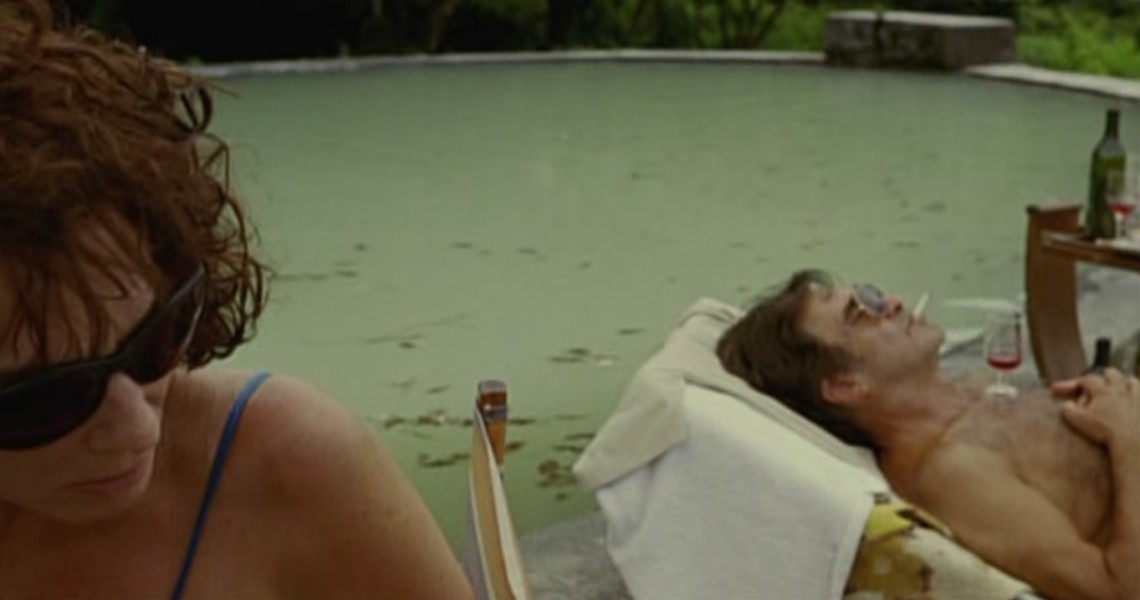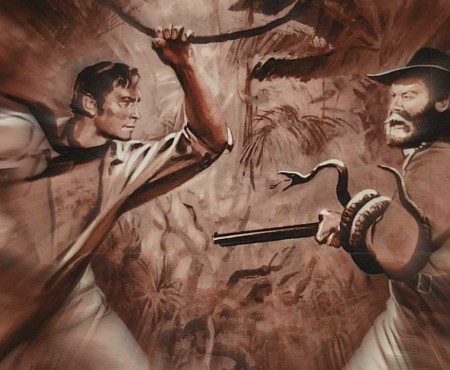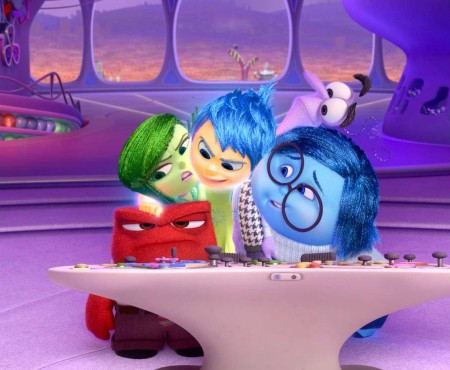Distributor: Criterion
Release Date: January 27, 2015
MSRP: $29.95
Order at Amazon
Film: B+ / Video: A- / Audio: A- / Extras: C
The constant menace of ennui lingers over every frame in La Cienaga, director Lucretia Martel’s stunning début that unfolds with an unsettling nightmarish sprawl that seems to stretch on long after the credits roll. There are no instances of traditional horror present in this sweaty and sticky setting, only cyclical occurrences and the inevitability of repeated social rituals that fail to signify any sense of hope or escape for the film’s many characters. Observing the banal activities of a rich extended family in the summertime, Martel’s film is filled with a certain type of societal rot that only she could precisely construct with the sort of detail that is boldly applied here.
The opening images introduce us to a handful of adults lounging around a filthy pool with a thick cloudy fog hanging over them. Drinks in hand and cigarettes in mouth, their motionless and sagging bodies are trapped in a daze of boredom and unrest. They drag around metal chairs that clang against the tiled floor to position themselves along the green, dirty pool in this passionless and mostly wordless environment. Their privilege has earned them this repeated drunken stupor, and even as the event seems harmless, danger always seems to linger on the horizon and outside of the frame.
Mostly comprised of loose observations, Martel’s films manage to disorient in the way that information is presented and withheld. Though the narrative is sparse, the events kick off when Mecha (Graciela Borges) takes a fall while trying to hold several wine glasses and badly cuts herself. Phone calls are made and eventually other members of the family arrive at the estate. It’s often hard to keep up with the logistics of how everyone is related, but we come to meet Mecha’s oldest son, José (Juan Cruz Bordeu); and her cousin, Tali (Mercedes Morán), who arrives with her husband, Rafael (Daniel Valenzuela), and their children. Mecha’s husband, Gregorio (Martín Adjemián) is of no significant use to anyone, exhausting all of his energy on dying his hair and getting drunk.
Mecha and Gregorio’s kids, along with their cousins, spend their days packed tightly into humid bedrooms where they sit in fascination over a news story of a woman who claims to have witnessed a vision of the Virgin Mary; most become ravaged by an incestuous sexual desire as well. One of the boys is obsessed with the indigenous “Indian” maid, Isabel (Andrea Lopez), who is repeatedly and unfairly accused of theft. A few generations removed from proper traditions and glory, Martel frames the children and their movements of malaise with a searching and mysterious grace. Images and sounds become more disarming and unsettling: a dying cow stuck in a swamp, multiple gun blasts in the distance, and machetes being recklessly swung around by kids in closed-quarters, each contributing to the the film’s dense aural language that seems to tell its own smaller story about silence and oppression where characters never say what they mean and everything is implied. Breathing room is sparse, privacy is limited, and Martel’s handheld camera captures every instance without judgment.
There is no key to unlocking this fluid narrative where big moments and epiphanies have no proper bearing, but what Martel is interested in is small, fleeting acts of empathy. Displacement is also important in Martel’s cinema, particularly in the director’s last film, The Headless Woman, a masterwork of formal rigor and complexity, but its roots are firmly embedded in this confident and vital début that isn’t about healing historical wounds as much as it’s about the unrest that often comes with intense reflection. La Cienaga may not be perfect, but it marked the arrival of a supremely original voice in Argentine cinema. The film doesn’t end as much as it fades out, and all we’re left with is the feeling that everything will repeat itself.
A/V
This Blu-ray restoration proves essential by simply taking a look at the poor visual state of the film’s prior home-video release. The images now carry immense clarity and detail; from the smudged and dirty bedroom walls seen in the family’s mansion, to the dirt living on the car windows, the transfer is immaculate. The disc’s sound quality is also great, capturing not just the film’s intricate sound design, but smaller details like the rusty springs on a bed and the flickering lights in a hospital, each adding to the film’s overwhelming sense of creaky and foreboding dismay.
Extras
The disc suffers a bit in terms of its supplements but includes a wonderful, immersive new interview with Lucrecia Martel, skillfully detailing how the film submerges its audience. She also speaks anecdotally about the effects her grandmother’s horror stories had on her, and the unusual storytelling structure of the film. Andres di Tella, cofounder of the Buenos Aires International Festival of Independent Cinema, narrates a video interview in which he discusses Martel’s style, and examines her place in the New Argentine Cinema. He also speaks briefly on the use of language in the film and its enormous script which was chopped in half. The disc also comes with a trailer and University of Buenos Aires professor David Oubitia’s essay on the film, “What’s Outside the Frame.”
Overall
Lucrecia Martel impresses in a major way in her first feature, and Criterion is rightfully justified in adding this odd, alluring, and haunting debut to their lineup.





















One thought on “Blu-ray Review: La Cienaga”
Pingback: Blu-ray Review: La Cienaga | serene cinema